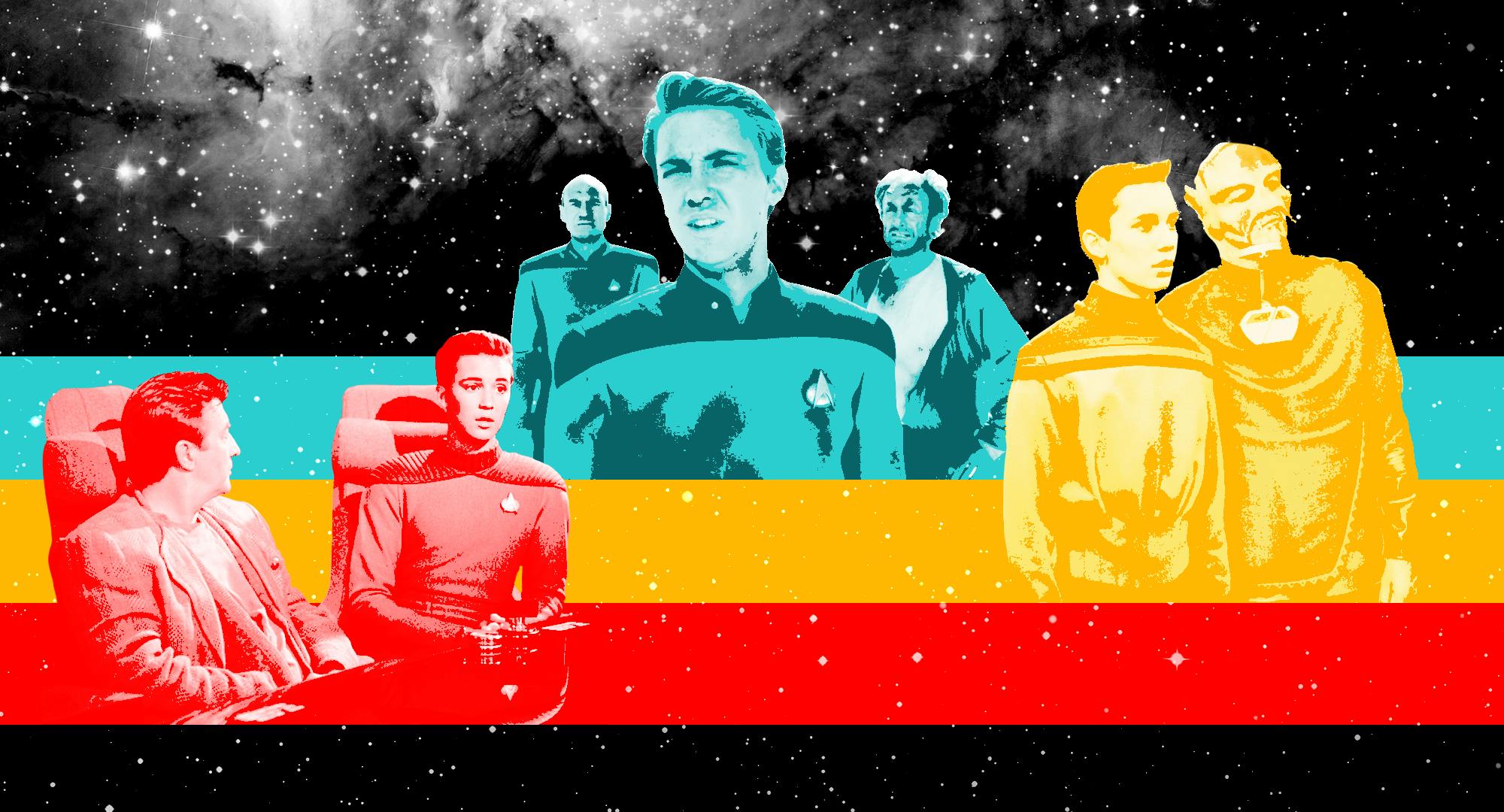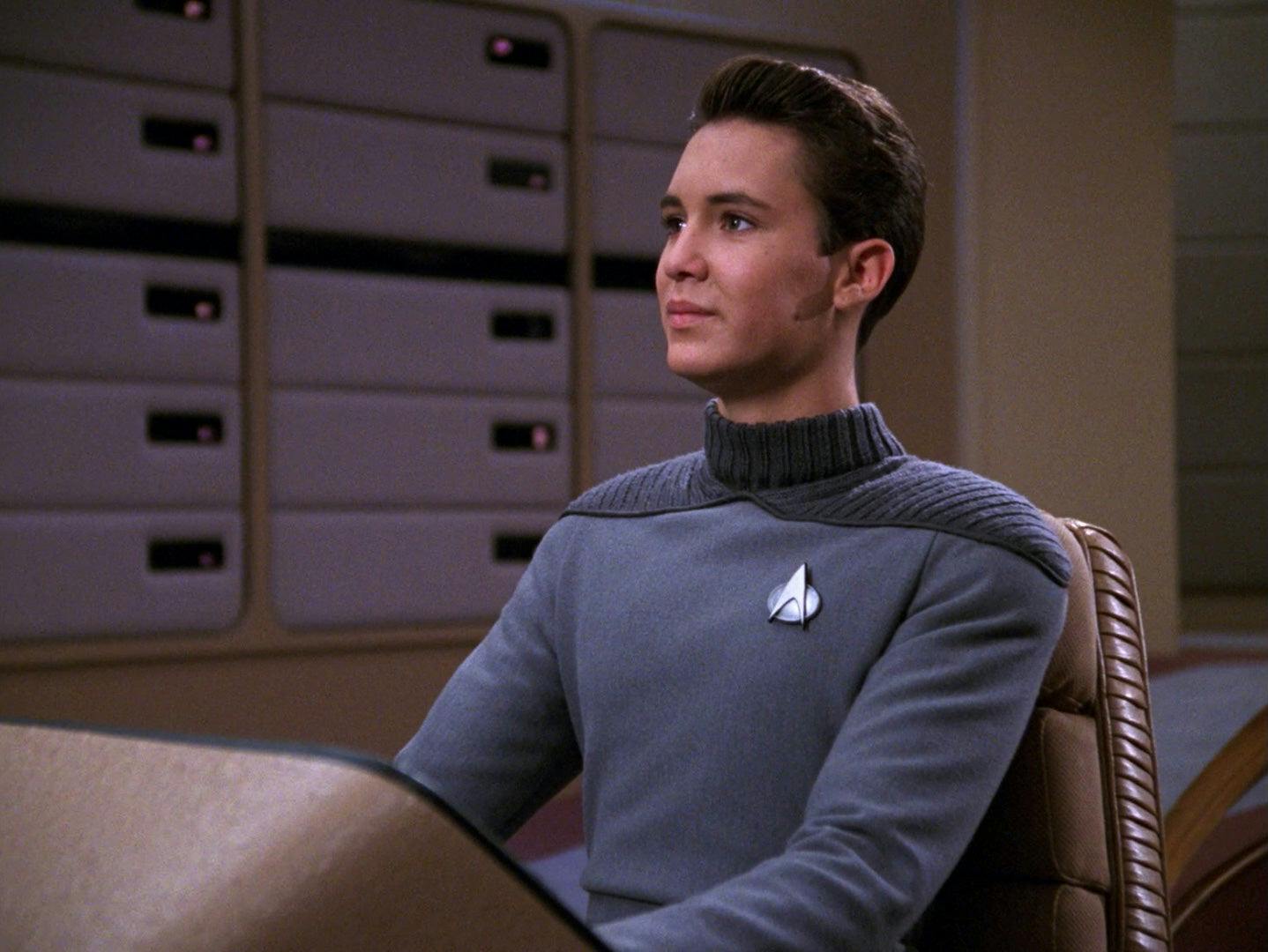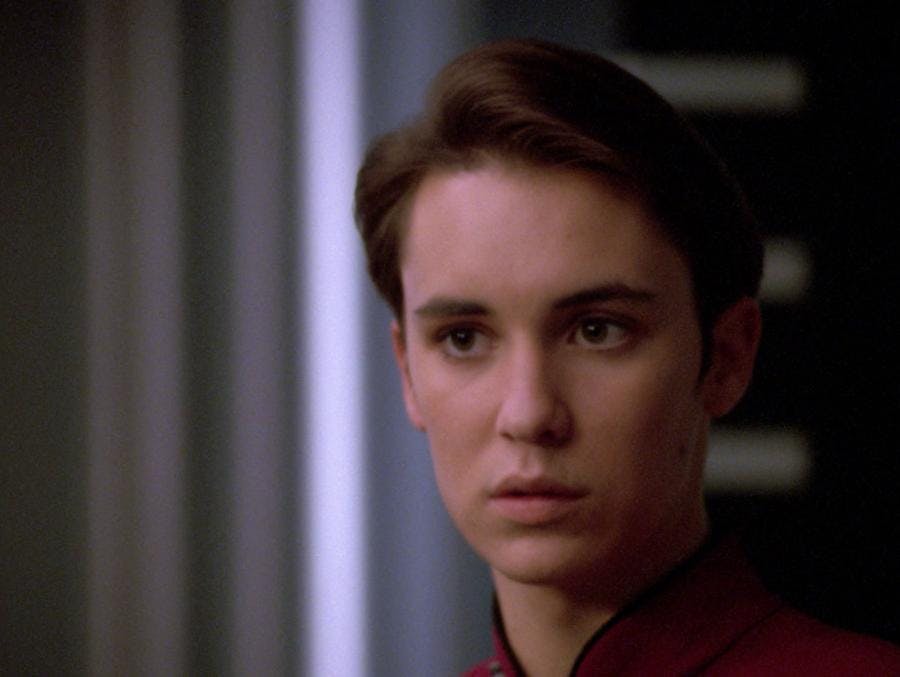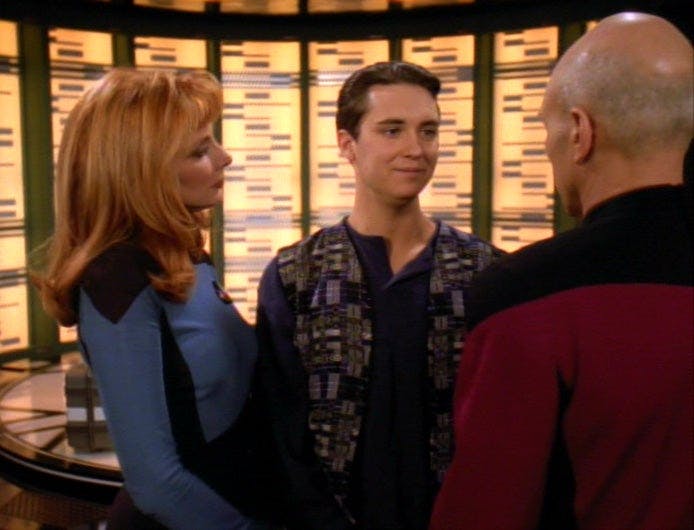Published Sep 21, 2022
The Evolution of Wesley Crusher
A character spotlight on Wesley Crusher, from acting-ensign to Traveler.

StarTrek.com
One of my favorite characters on The Next Generation is Wesley Crusher.
I’ve always been a fan of the underdog, and Wesley fits that bill perfectly — a prodigy on board a ship of Starfleet’s best and brightest. He’s more than just a wonder kid; I found him to be one of the most complex and well-developed characters on the series, with his arc being one of the more fascinating journeys on a series which has several great ones. The series presents Wesley as someone who represents the best ideals of a Starfleet officer candidate, a keen study with a passionate interest in science. However, he could sometimes struggle under the pressures of high expectations placed upon him from an early age. It was only towards the end of the series when we finally see that Wesley feels content in leaving Starfleet to realize his goals.
“Evolution” does a good job at establishing that Wesley isn’t a perfect person who has plenty of learning to do on his path, ultimately leading him to join The Traveler in “Journey’s End.” He doesn’t always get everything right. What’s more, time after time throughout the series, he’s consistently placed in environments where adults are too busy for him, constantly overlook his skills, or are too overbearing.

StarTrek.com
In “Journey’s End,” Wesley’s mother, Dr. Beverly Crusher, returns to the ship and finds it hard to reconnect with him. This leads the young man to seek solace elsewhere in Dr. Stubbs. The subtle teleplay from Michael Piller presents Dr. Stubbs and Wesley’s other role model figure, Captain Picard, as alternatives to one another, looking at the impact both would have as surrogate fathers for a teenager without one. Whilst the dedicated scientist is clearly imperfect and flawed, he’s the same sort of person that Wesley could end up as in the years to come if he doesn’t keep his humanity in check. It’s easy to see why Dr. Stubbs is initially appealing, as he comes across initially as an alternative to Picard; their characters share a mutual hunger for science and the unknown whilst their passion for baseball is incredibly heartfelt.
However, Dr. Stubbs lets his ego consume him to the point where it puts lives on the Enterprise in danger, placing Wesley in a situation where he must realize that his own mistakes may make him responsible. The fact that he might be struggling is hard for him to admit, and his scenes with his mother and Guinan keep him grounded, steering him back towards the right track. It’s these moments that separate him from Dr. Stubbs, keeping his influence restricted to a cautionary tale and humanizing Wesley without losing his appeal as a character.
His struggles and hard work pay off consistently over the series, but not without great cost, as we see him pursue his Starfleet Academy dreams. “Coming of Age” and “Ménage à Troi” aren’t afraid to show Wesley failing, showing he has no easy route towards his ambition. “Coming of Age” finds him failing at his first attempt at passing the Starfleet entrance exams; but ultimately, he sacrifices those dreams in “Ménage à Troi” when he comes into his own and saves key crewmembers of the Enterprise instead of taking part in the entrance examination. As a result, he loses the opportunity to enter the Academy, but is in turn promoted to the rank of a full Ensign. Given his achievements so far in the series, it feels completely earned.
In “Final Mission,” Wesley finally joins Starfleet Academy, but only after more hard work. After being stranded on a desert planet as a direct result of a mining shuttle accident, Wesley is forced into a situation where he has to work to save Picard’s life after the death of Captain Dirgo. It’s an episode that goes from strength to strength, highlighting how much the friendship between Wesley and Picard has evolved from their early days of Picard's disdain, with their farewell being one of the more tender and emotionally charged moments of the series. Their bond is heavy and sincere, working as much as a stepping stone for Picard’s development as it does for Wesley; Picard reminded of his own youth and mortality as he spends most of the episode completely reliant on Wesley’s help. It’s a touching moment when Picard admits that he doesn’t see Wesley as just a child anymore, but as someone who he envies, being “just at the beginning of the adventure.”

StarTrek.com
The scenes between Picard and Wesley in “Final Mission” act as a driving force for the younger man in the rest of the series. “The Game” sees Wesley in his element again, saving the ship from an addictive game consuming every member of the crew with the aid of Ensign Robin Lefler. It’s a classic hangout episode that’s just so much fun to watch, and revels in once again placing Wesley directly in his element, while “The First Duty” takes him out of his comfort zone again almost immediately, putting him in one of the most difficult positions that any crewmember has had to be in. In “The First Duty,” Wesley faces consequences for his actions that stay with him until the end of his time on the series.
“The first duty of every Starfleet officer is to the truth,” is a good mantra to have, one of the best – but it can be challenging in practice. The audience has become so used to situations where Wesley ends up saving the day to the point where he thinks he’s almost invincible himself, which is a trait shared with the rest of Nova Squadron who believe they can do no wrong. But the tragedy is that they are fallible. They lack the experience of actual officers and, more importantly, they lack the knowledge about when not to act. This leads to heartbreaking consequences and the death of a squadron member in an easily-preventable training accident as their world comes crashing down around them. Forced into a position where his training group are covering up their roles in the death of a teammate, Wesley is faced with an uncomfortable choice — does he take the hard, but honorable route in betraying his friends and jeopardizing not just his future but theirs? Or does he lie and take the easy way out?
If “Final Mission” was about reinforcing the relationship between Picard and Wesley, “The First Duty” is the episode that almost tore it apart. Wesley’s relationship with both Beverly and Picard is placed completely under the spotlight when they learn the truth. I’ll never not find it devastating when his mother realizes that Wesley might actually be lying about his involvement in the incident. Coupled with Picard’s speech that eventually sees him make a good, but a tough call in admitting what really happened in the training exercise, “The First Duty” demonstrates its capability to deliver truly poignant moments that prove to be character-defining, leaving Wesley to cope with consequences that affect his entire career.

StarTrek.com
Wesley is still living with the fallout on his mind in his last appearance in “Journey’s End,” where it’s clear from the moment that he returns to the Enterprise that he is unsettled with his role at Starfleet Academy and wants a new challenge. His potential remains unfulfilled, until he joins up with The Traveler, who wishes to mentor him and provide the answers that he needs to decide his future. For too long he has been following in his father’s shoes instead of taking his own path in life, and The Traveler gives him the chance to do just that with an entire universe to explore. In the case of “Journey’s End,” the title feels like a misnomer. Instead of an ending, for Wesley Crusher, it’s the start of something new.
Wesley Crusher Receives a Special Message from his Father
This article was originally published on September 1, 2020.
Milo (he/him) is a critic from the UK who regularly reviews TV, movies and comics. You can find him on twitter at @Milo_AFC.
Stay tuned to StarTrek.com for more details! And be sure to follow @StarTrek on Facebook, Twitter, and Instagram.

